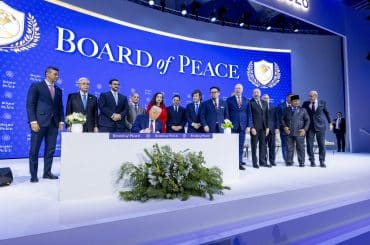Just what we’ve been waiting for. Here’s a press release from the Arab American Institute on a Zogby poll they’re going to release tomorrow morning:
The Arab American Institute (AAI) will hold a press conference tomorrow, Wednesday, July 13, 2011 at 10:00 a.m. at its offices at 1600 K St, NW Ste. 601 in Washington, DC, to release the findings of the latest AAI/Zogby International poll. Findings from the survey of six Arab nations show U.S. favorable ratings across the Arab world have plummeted.
With the 2008 election of Barack Obama, favorable attitudes toward the U.S. more than doubled in many Arab countries. But in the two years since his famous “Cairo speech,” ratings for both the U.S. and the President have spiraled downwards. The President is seen overwhelmingly as failing to meet the expectations set during his speech, and the vast majority of those surveyed disagree with U.S policies.
In five out of the six countries surveyed, the U.S. was viewed less favorably than Turkey, China, France—or Iran. Far from seeing the U.S. as a leader in the post-Arab Spring environment, the countries surveyed viewed “U.S. interference in the Arab world” as the greatest obstacle to peace and stability in the Middle East, second only to the continued Palestinian occupation.
While the vehemence of Arab reaction to the U.S. was startling, the general sentiment echoed points made in AAI President James Zogby’s 2010 book Arab Voices, in which he reflected on Arab opinions of both the U.S. and our foreign policies. “American democracy [seems] a lot like damaged goods to many Arabs… U.S. policy in the region has increasingly undermined Arab attitudes toward America as a global model.”
“This poll reaffirms what we’ve been saying,” said Zogby today. “Americans looked to Obama for change in 2008. The expectations were high, and we haven’t delivered. It seems that one thing that Americans and Arabs agree on is that the U.S. needs to make changes here at home before looking to build on changes abroad.”
Zogby added, “Here and abroad, people were looking for real changes in our domestic and foreign policies, for real engagement in the Arab world and for progress in Palestine. These numbers are a clear statement of their disappointment.”

